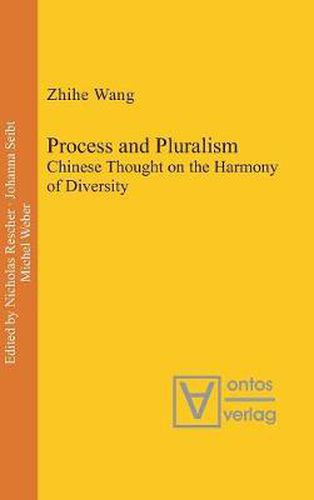Readings Newsletter
Become a Readings Member to make your shopping experience even easier.
Sign in or sign up for free!
You’re not far away from qualifying for FREE standard shipping within Australia
You’ve qualified for FREE standard shipping within Australia
The cart is loading…






This title is printed to order. This book may have been self-published. If so, we cannot guarantee the quality of the content. In the main most books will have gone through the editing process however some may not. We therefore suggest that you be aware of this before ordering this book. If in doubt check either the author or publisher’s details as we are unable to accept any returns unless they are faulty. Please contact us if you have any questions.
This book offers a uniquely process relational oriented Chinese approach to inter-religious dialogue called Chinese Harmonism. The key features of Chinese harmonism are peaceful co-existence, mutual transformation, and openness to change. As developed with help from Whiteheadian process thought, Chinese harmonism provides a middle way between particularism and universalism, showing how diversity can exist within unity. Chinese harmonism is open to similarities among religions, but it also emphasizes that differences among religions can be complementary rather than contradictory. Thus Chinese harmonism implies an attitude of respect for others and a willingness to learn from others, without reducing the other to one’s own identity: that is, to sameness. By emphasizing the possibility of complementariness, a process oriented Chinese harmonism avoids a dichotomy between universalism and particularism represented respectively by John Hick and S. Mark Heim, and will make room for a genuine openness and do justice to the culturally and religiously other.
$9.00 standard shipping within Australia
FREE standard shipping within Australia for orders over $100.00
Express & International shipping calculated at checkout
This title is printed to order. This book may have been self-published. If so, we cannot guarantee the quality of the content. In the main most books will have gone through the editing process however some may not. We therefore suggest that you be aware of this before ordering this book. If in doubt check either the author or publisher’s details as we are unable to accept any returns unless they are faulty. Please contact us if you have any questions.
This book offers a uniquely process relational oriented Chinese approach to inter-religious dialogue called Chinese Harmonism. The key features of Chinese harmonism are peaceful co-existence, mutual transformation, and openness to change. As developed with help from Whiteheadian process thought, Chinese harmonism provides a middle way between particularism and universalism, showing how diversity can exist within unity. Chinese harmonism is open to similarities among religions, but it also emphasizes that differences among religions can be complementary rather than contradictory. Thus Chinese harmonism implies an attitude of respect for others and a willingness to learn from others, without reducing the other to one’s own identity: that is, to sameness. By emphasizing the possibility of complementariness, a process oriented Chinese harmonism avoids a dichotomy between universalism and particularism represented respectively by John Hick and S. Mark Heim, and will make room for a genuine openness and do justice to the culturally and religiously other.